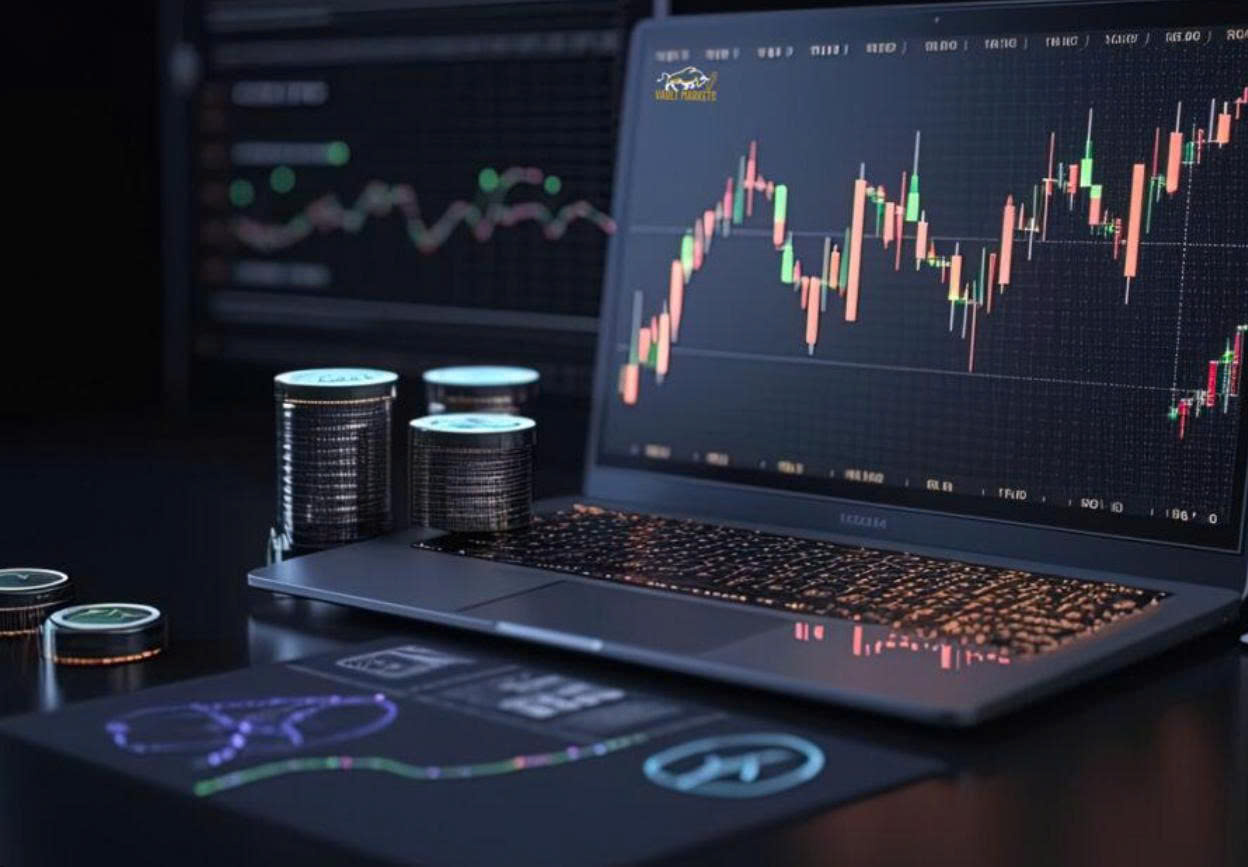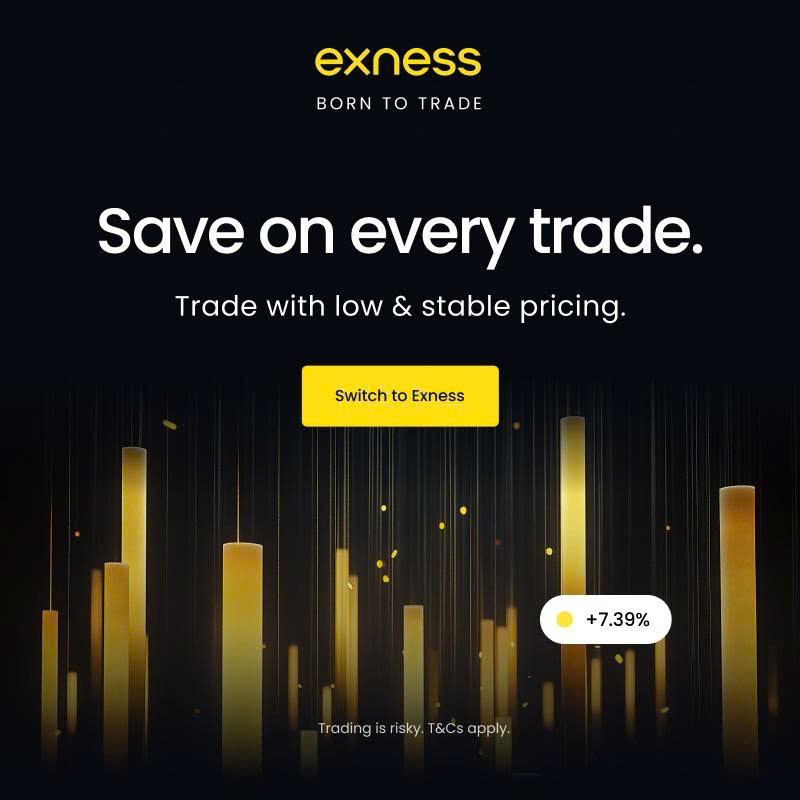
10 minute read
Is Forex Trading Illegal in Malaysia? A Comprehensive Guide for 2025
from Exness
by Exness Blog
Forex trading, or foreign exchange trading, has surged in popularity worldwide, including in Malaysia, as individuals seek opportunities to profit from currency fluctuations. With its promise of high returns and accessibility, the forex market attracts both novice and seasoned traders. However, a common question among Malaysians is, “Is forex trading illegal in Malaysia?” The answer is nuanced, involving a blend of regulatory frameworks, compliance requirements, and practical considerations. In this comprehensive guide, we’ll explore the legality of forex trading in Malaysia, the regulatory landscape, risks, and tips for trading safely and effectively in 2025.
Top 4 Best Forex Brokers in Malaysia
1️⃣ Exness: Open An Account or Visit Brokers 🏆
2️⃣ XM: Open An Account or Visit Brokers 💥
3️⃣ JustMarkets: Open An Account or Visit Brokers ✅
4️⃣ Quotex: Open An Account or Visit Brokers 🌐
Understanding Forex Trading: A Brief Overview
Forex trading involves buying one currency while selling another, capitalizing on fluctuations in exchange rates. It’s the largest financial market globally, with a daily trading volume exceeding $7.5 trillion. Operating 24 hours a day, five days a week, across major financial hubs like London, New York, and Tokyo, forex trading offers unmatched liquidity and flexibility. In Malaysia, the allure of forex lies in its potential for high returns and the ability to diversify investment portfolios. But with this opportunity comes the critical question: Is it legal?
Key Terms in Forex Trading
Before diving into the legal aspects, let’s clarify some essential forex terms for beginners:
· Currency Pairs: Trades involve pairs like EUR/USD or USD/MYR, where the first currency is the base, and the second is the quote currency.
· Pips: The smallest price movement in a currency pair, used to measure gains or losses.
· Leverage: A tool allowing traders to control larger positions with less capital, amplifying both profits and risks.
· Margin: The collateral required to open leveraged positions.
· Islamic Accounts: Swap-free accounts compliant with Shariah law, avoiding interest (riba).
Understanding these terms is crucial for navigating the forex market and its regulations in Malaysia.
Is Forex Trading Legal in Malaysia?
The short answer is yes, forex trading is legal in Malaysia, but it comes with strict conditions. Traders must comply with regulations set by Malaysia’s financial authorities to ensure safe and legal trading. The primary regulatory bodies overseeing forex trading are:
1. Bank Negara Malaysia (BNM)
As Malaysia’s central bank, BNM regulates the Malaysian Ringgit (MYR) and oversees financial stability. According to the Exchange Control Act of 1953, it is an offense to buy or sell foreign currency with anyone other than an authorized dealer, such as licensed onshore banks or approved brokers. BNM also issues licenses to money-changing businesses and periodically updates its Financial Consumer Alert (FCA) List, which flags unauthorized entities involved in financial activities.
2. Securities Commission Malaysia (SCM)
The SCM regulates capital market activities, including forex brokers offering derivatives like Contracts for Difference (CFDs). Under the Securities Commission Act of 1993 and the Capital Markets and Services Act of 2007, brokers must hold a Capital Markets Services License to operate legally in Malaysia. The SCM has cracked down on unlicensed brokers since 2020, issuing warnings against firms like eToro, HotForex, and FBS for operating without local authorization.
3. Labuan Financial Services Authority (LFSA)
Offshore brokers based in Labuan, a Malaysian federal territory, are regulated by the LFSA. These brokers can legally accept clients from Peninsular Malaysia, provided they adhere to leverage limits (capped at 1:50 for retail traders) and maintain segregated client accounts.
4. Other Regulatory Bodies
Additional bodies like the Malaysian Investment Development Authority (MIDA) and the Shariah Advisory Council (SAC) contribute to the regulatory framework, ensuring compliance with financial and Islamic principles.
Key Takeaway
Forex trading is legal in Malaysia when conducted through licensed onshore banks, SCM-regulated brokers, or LFSA-approved offshore brokers. Trading with unregulated entities or unauthorized money changers is illegal and carries significant risks, including fraud and loss of funds.
Offshore Brokers: A Gray Area
Many Malaysian traders use offshore brokers regulated in jurisdictions like the UK, Australia, or Cyprus due to competitive spreads, advanced platforms, and higher leverage (sometimes up to 1:2000). While investing with offshore brokers is technically legal and considered a form of foreign investment, the SCM has tightened its stance since 2020. Unlicensed offshore brokers operating in Malaysia without SCM or LFSA approval risk being labeled as conducting “unlicensed capital market activities.” Traders using such brokers may face challenges like frozen funds or limited legal recourse in disputes.
To stay safe, Malaysian traders should:
· Verify the broker’s regulatory status with reputable authorities like the UK’s Financial Conduct Authority (FCA) or Australia’s ASIC.
· Ensure the broker maintains segregated accounts to protect client funds.
· Avoid brokers listed on BNM’s FCA List, which includes nearly 400 unauthorized entities.
Islamic Forex Trading: Is It Halal?
For Malaysia’s Muslim population, a key concern is whether forex trading aligns with Islamic principles. Forex trading can be considered halal if it adheres to Shariah-compliant methods, avoiding:
· Riba (Interest): Islamic accounts, also known as swap-free accounts, eliminate overnight interest (swap fees) to comply with Shariah law.
· Gharar (Uncertainty): Excessive speculation resembling gambling is prohibited. Traders must use disciplined strategies and risk management to minimize uncertainty.
Brokers like AvaTrade, Pepperstone, and XM offer Shariah-compliant accounts, making forex trading accessible to Muslim traders in Malaysia. Always confirm the broker’s Islamic account complies with SAC guidelines.
Taxation of Forex Trading in Malaysia
Forex income in Malaysia is subject to income tax, as per the Inland Revenue Board of Malaysia (IRBM). Profits from forex trading are considered income and must be reported based on the trader’s income bracket, with tax rates ranging from 1% to 30%. However, capital gains from forex trading are generally tax-exempt, particularly when using Islamic accounts. Traders should:
· Keep detailed records of trading activities.
· Consult a tax professional to differentiate between income and capital gains.
· Report earnings accurately to avoid penalties.
Non-residents are taxed only on income earned within Malaysia, while residents must declare worldwide income.

💥 Trade with Exness now: Open An Account or Visit Brokers 🏆
Risks of Forex Trading in Malaysia
While forex trading is legal, it’s not without risks. Here are the primary challenges Malaysian traders face:
1. Market Volatility
Sudden price movements can lead to margin calls or significant losses, especially in volatile currency pairs like USD/MYR.
2. Leverage Risks
BNM caps leverage at 1:50 for retail traders to mitigate risk, but even this level can amplify losses. For example, a 1% price movement against a leveraged position could wipe out a significant portion of your capital.
3. Counterparty Risk
Trading with unregulated brokers increases the risk of withdrawal issues or fraud, especially if the broker faces financial difficulties.
4. Regulatory Changes
BNM and SCM regularly update policies to protect consumers. Staying informed about these changes is crucial to avoid inadvertently violating regulations.
5. Psychological Challenges
The emotional rollercoaster of trading can lead to impulsive decisions driven by fear or greed. A disciplined trading plan is essential for long-term success.
How to Trade Forex Legally in Malaysia: A Step-by-Step Guide
For beginners looking to start forex trading in Malaysia, follow these steps to ensure compliance and success:
Step 1: Educate Yourself
Learn the basics of forex trading, including currency pairs, technical analysis, and risk management. Resources like webinars, forex blogs, and demo accounts are invaluable.
Step 2: Choose a Regulated Broker
Select a broker regulated by BNM, SCM, LFSA, or reputable international authorities. Top brokers for Malaysian traders in 2025 include:
· Exness: Provides fast execution and low fees.
· AvaTrade: Known for Shariah-compliant accounts and competitive spreads.
· IG: Offers a feature-rich mobile app and global regulation.
· XM: Offers robust educational resources and MT4/MT5 platforms.
Check the broker’s license on their website or with the relevant regulatory authority.
Step 3: Open a Trading Account
Choose between a standard or Islamic account, depending on your needs. Most brokers offer demo accounts to practice trading without risking real money.
Step 4: Develop a Trading Plan
Create a strategy that includes:
· Risk management tools like stop-loss orders.
· Diversification across multiple currency pairs.
· A clear entry and exit strategy based on technical or fundamental analysis.
Step 5: Stay Updated
Monitor global economic news, such as interest rate decisions, GDP reports, and geopolitical events, as they impact currency prices. Platforms like MetaTrader 4 (MT4) and MetaTrader 5 (MT5), widely used in Malaysia, offer real-time market analysis tools.
Step 6: Manage Risks
Start with small investments ($10–$100) and use leverage cautiously. Avoid putting all your capital into a single trade.
Choosing the Best Forex Broker in Malaysia
Selecting a reliable broker is critical for a safe and profitable trading experience. Consider these factors:
· Regulation: Ensure the broker is licensed by SCM, LFSA, or a reputable international regulator.
· Spreads and Fees: Look for low spreads and transparent fee structures to maximize profits.
· Trading Platforms: MT4 and MT5 are popular for their advanced tools and user-friendly interfaces.
· Customer Support: Choose brokers with responsive support, preferably in Malay or English.
· Islamic Accounts: For Muslim traders, verify the availability of swap-free accounts.
Avoid brokers promising guaranteed profits or quick riches, as these are often scams.
Common Forex Scams in Malaysia
Despite its legality, forex trading in Malaysia is not immune to scams. Common schemes include:
· Unregulated Brokers: Entities operating without licenses, often listed on BNM’s FCA List.
· Ponzi Schemes: Promises of high returns with little risk, using new investors’ funds to pay earlier ones.
· Fake Training Programs: Seminars or workshops luring investors with false promises of success.
To avoid scams:
· Verify the broker’s regulatory status.
· Be wary of “get-rich-quick” schemes.
· Research reviews and user experiences before investing.
Tips for Successful Forex Trading in Malaysia
To maximize your success in the forex market, follow these tips:
· Stay Informed: Follow reputable financial news sources and trading forums for market updates.
· Use Risk Management Tools: Set stop-loss orders and limit leverage to protect your capital.
· Diversify: Trade multiple currency pairs to spread risk.
· Continuous Learning: Attend webinars, read forex blogs, and engage with trading communities.
· Practice Patience: Avoid emotional trading and stick to your plan.
The Future of Forex Trading in Malaysia
As Malaysia’s economy grows, so does interest in forex trading. The country’s proximity to Singapore, a major financial hub, and its focus on Islamic finance create a unique trading environment. In 2025, we can expect:
· Tighter Regulations: BNM and SCM will likely continue cracking down on unlicensed brokers.
· Growth in Islamic Trading: Demand for Shariah-compliant accounts will rise.
· Technological Advancements: Mobile trading apps and AI-driven tools will enhance accessibility.
Conclusion
Forex trading is legal in Malaysia when conducted through regulated channels, such as licensed onshore banks, SCM-regulated brokers, or LFSA-approved offshore brokers. While the market offers significant opportunities, it also carries risks like volatility, leverage, and scams. By choosing a reputable broker, adhering to BNM and SCM regulations, and employing disciplined trading strategies, Malaysian traders can navigate the forex market safely and profitably in 2025.
For those ready to start, prioritize education, select a regulated broker, and practice with a demo account. Stay informed about regulatory updates and global economic trends to make informed decisions. With the right approach, forex trading in Malaysia can be a rewarding venture.
💥 Note: To enjoy the benefits of the partner code, such as trading fee rebates, you need to register with Exness through this link: Open An Account or Visit Brokers 🏆
Read more:










